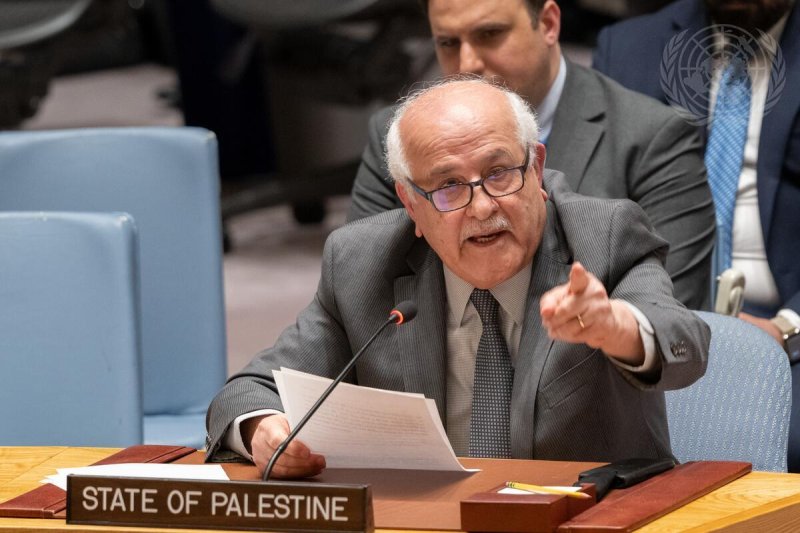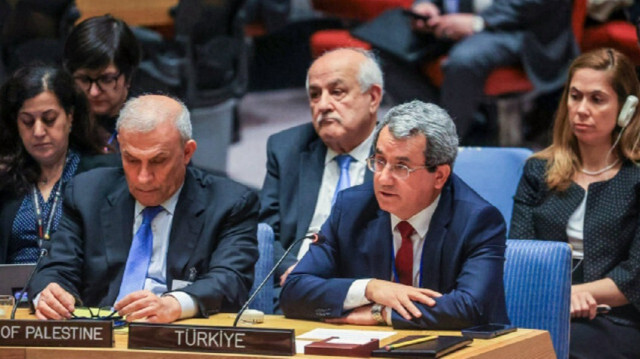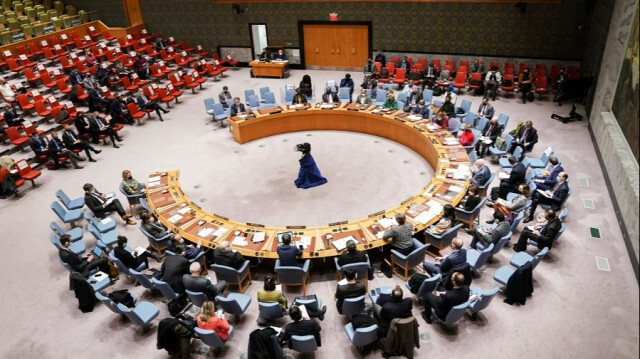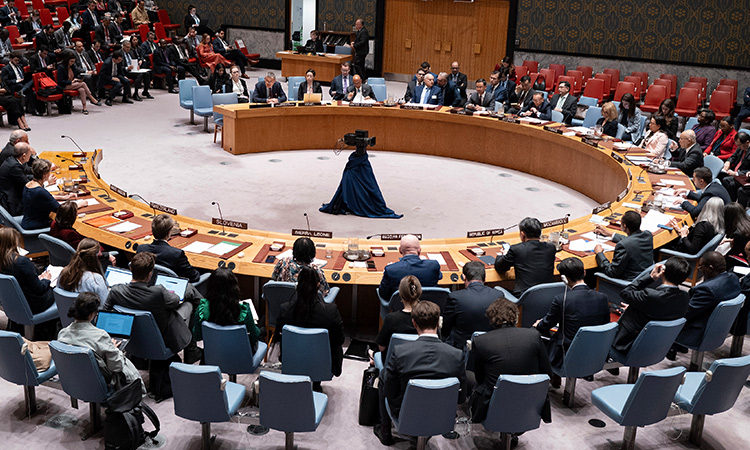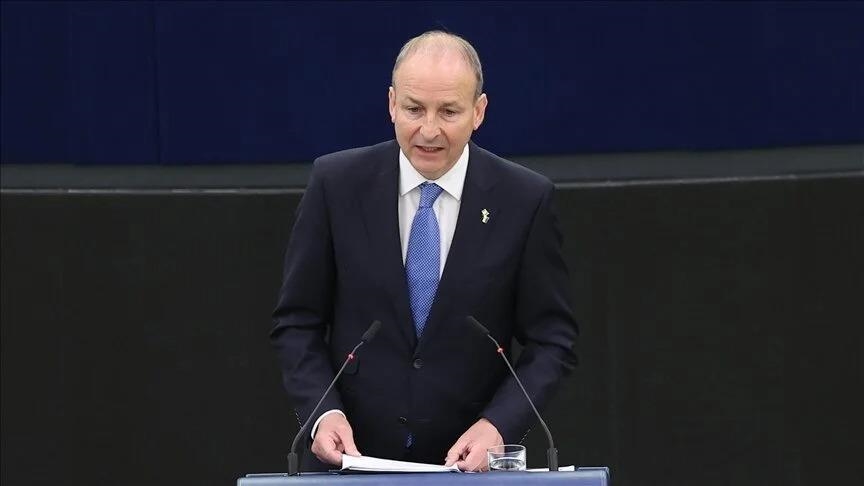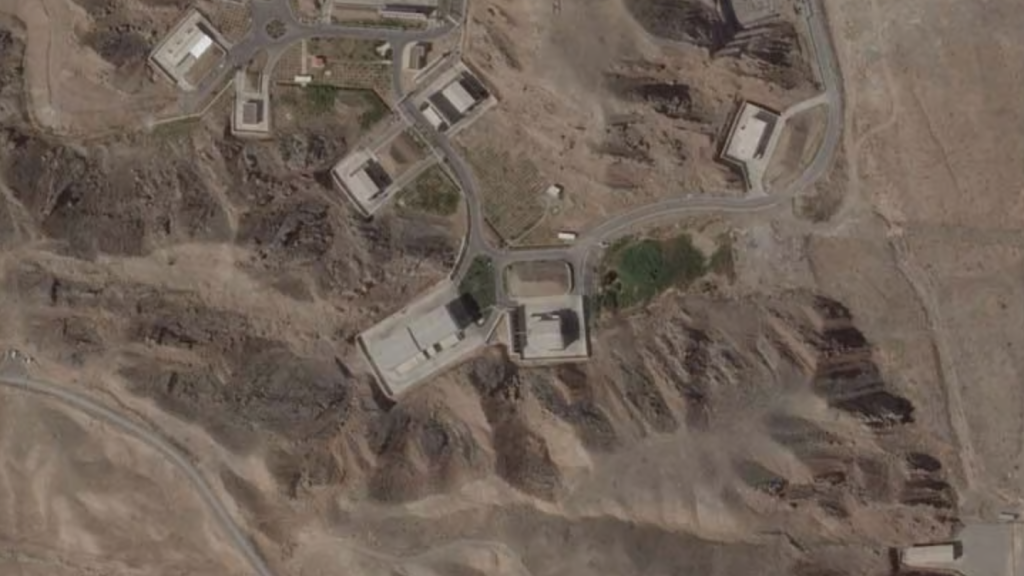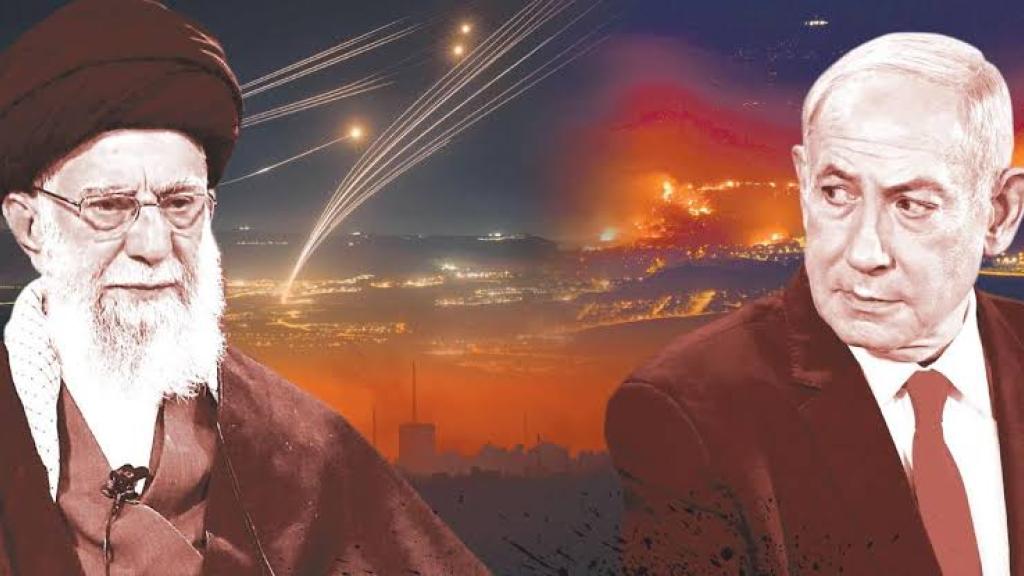First published at Asian Marxist Review.
The new chaos emerging in the Middle East following the events of October 7, 2023, is not showing any signs of abating. Instead, with its enormous contradictions, it holds immense potential for further escalation, intensifying destruction and bloodshed. Netanyahu, the Prime Minister of the Middle East’s only functional “democracy,” is basically an imperialist gangster, a habitual war criminal and a Zionist fanatic. Like a bull in a china shop, he seems intent on provoking mischief and devastation at every turn. During the first six months of its recent offensive, Israel dropped 70,000 tons of explosives on Gaza — more than the combined bombing of major cities in Great Britain and Germany throughout the entire World War II. The horrors unleashed in the months since then have been even more barbaric, practically reducing Gaza to rubble, with indiscriminate destruction of schools, hospitals, residential buildings and other essential infrastructure.
Over the past year, more than 43,000 Palestinians have been killed in Israeli airstrikes and ground operations, with even the most conservative estimates indicating that 90 percent of the casualties are civilians, and over 60 percent are children, the elderly and women. According to Oxfam, this represents the highest rate of casualties among women and children in any conflict in recent history. Additionally, about 150 journalists and 225 aid workers have also lost their lives so far. Furthermore, around 100,000 people have been injured or permanently disabled. If we account for deaths resulting from indirect causes — such as lack of medical treatment and malnourishment — due to the ongoing aggression, the loss of life could increase significantly. According to the British journal The Lancet, the number of Palestinian deaths is estimated at 186,000. If a similar rate of deaths were to occur in the American population, it would equate to 28 million lives lost.
This ongoing carnage is occurring not only before the champions of democracy and human rights in the so-called civilized capitalist world but also with their full blessing, support and backing. The problem doesn’t stop here. Netanyahu is striving to escalate the Zionist invasion into a major regional war by extending it as far as possible. The attack on the Iranian embassy in Damascus in April of this year, the assassination of Hamas leader Ismail Haniyeh in Tehran in July, explosions of Hezbollah’s communication equipment in recent weeks and airstrikes on Lebanon including the capital, Beirut — resulting in the deaths of many key Hezbollah leaders, including Hassan Nasrallah, who had led the organization for three decades — have all been steps towards further escalation. As a consequence of the recent Israeli operations, the death toll in Lebanon has already exceeded 2,000, and around one million people have been forced to flee their homes. At the time of writing, Israel continues to bomb the country, including central Beirut, and the number of casualties continues to rise.
These actions by the Zionist state, marked by extreme apathy, provocation and brazenness, have been so unexpected that even the leaders of Hamas and Hezbollah who were killed likely could not foresee their fate. In many instances, even the Western imperialist states supporting Israel appear to be in a state of confusion, surprise and shock — including significant elements of the US imperialist establishment itself.
The question, however, is why Netanyahu along with his gang is so determined to violate all morals, laws and norms of the imperialist world order. Understanding this puzzle requires an examination of the inter-imperialist contradictions intensifying on a global scale, the internal politics of Israel, and the crisis and decline of Western imperialism, particularly that of the United States. In an article dated April 2024, we addressed these fundamental aspects and future possibilities with the following insights:
Netanyahu, who has failed to crush Hamas, is now seeking to escalate the ongoing killings and destruction in Gaza into an open war with Iran across the region. He believes that a continuous state of war will guarantee his hold on power; otherwise, he risks facing serious corruption charges and potentially ending up in prison. Beyond this immediate concern, Israel’s ambitions include compelling Western imperialism — particularly the United States — to intervene directly in the region and to provide full and open support against Iran. This would serve to divert global attention from the ongoing atrocities in Gaza and undermine Iran’s nuclear program…
A potential war could spiral out of control, spreading not only throughout the Middle East but beyond, with the risk of nuclear weapons being used and widespread anger against the reactionary and oppressive states in the region igniting mass rebellions. In this context, all imperialist powers — including the US, Europe, Russia and China — are warning Israel against further provocations, fearing an outbreak of insurrections and a deepening crisis in the already beleaguered world economy. However, these warnings and appeals provide no guarantee that Netanyahu will back down.
The crisis of the Zionist state
It is true that Israel has long maintained a policy of responding disproportionately to any attacks, whether within or outside its borders, regardless of the human cost. However, when viewed from a broader historical perspective, the current situation emerges as an inevitable result of the internal crisis within the Zionist state and the deep divisions in Israeli society regarding the nation’s political and ideological direction.
On one side are the secular, liberal segments of the population, primarily middle-class European Jews, who aspire to develop the Zionist state into a democratic and “pluralist” society, albeit one that enforces apartheid and represses Palestinians. On the other side are more conservative factions, mostly composed of new settlers and occupiers of Palestinian lands, who seek to transform Israel into a Jewish theocratic state grounded in ancient religious teachings. These groups are prepared to go to any lengths for Israel’s geographical expansion, including the occupation of neighboring territories and the genocide and expulsion of Palestinians.
Over the past decade and a half, the influence of the latter group has seen unprecedented growth within the government and security apparatus, resulting in an increasingly reactionary, oppressive and barbaric Israeli state. This shift must also be contextualized within the global rise of far-right movements. It is not an exaggeration to describe Netanyahu’s coalition — including his allies, government officials and cabinet members like Daniel Hagari, Ben-Gvir, Yoaf Gallant and Bezalel Smotrich — as the Zionist equivalent of ISIS or the Taliban. This gang, including Netanyahu, appears intent on implementing the historic Zionist project more aggressively and reshaping the Israeli state into a more fascist structure. Their agenda includes measures to curtail democratic freedoms and limit judicial powers. Despite this, the resistance and agitation from relatively liberal opposition parties and ordinary Israeli citizens have persisted, manifesting in protests. The events of October 7 temporarily disrupted this dynamic, as feelings of patriotism and defense of the homeland overwhelmed the populace. However, the underlying contradictions are reigniting amid grim economic conditions and ongoing uncertainty, evidenced by violent protests against Netanyahu following the killings of Israeli prisoners held by Hamas and an eight-hour general strike on September 1, which had to be suppressed by the Supreme Court. The growing discontent and social contradictions could lead to more violent expressions in the future.
The state of the Israeli economy is also concerning. The economy shrank by 20 percent in the last three months of the previous year alone. Despite a temporary recovery, the economic downturn is likely to persist under current circumstances of war and uncertainty. In terms of per capita GDP and income, Israel may be considered a wealthy country, but this prosperity heavily relies on aid and investment from the Western powers, particularly the United States. Historically, Israel has been the largest recipient of US aid, receiving more than $300 billion since 1946. When indirect support is included, this figure may be significantly higher. For decades, the US has provided Israel with four to five billion dollars annually in military aid, primarily spent on purchasing US-made weapons and advanced military hardware, thus subsidizing the US military-industrial complex.
In the current context, the US has committed a record $17.9 billion in military aid to Israel since the Gaza war began one year ago. For a country with a population of less than 10 million, this represents a colossal financial backing. However, the conditions of a direct and unending war can undermine even the strongest economies, driving them into unsustainable deficits and debts.
Agencies such as S&P and Moody’s have downgraded Israel’s credit ratings following Iran’s missile attack on October 1. Furthermore, if the current war continues, the financial cost could escalate to as much as 10 percent of Israel’s GDP. In light of this situation, many capitalists are moving their investments out of Israel. While it is true that US imperialism views the Zionist state as its outpost — indeed, its extension — in the Middle East and would likely be willing to bail it out under any circumstances, worsening conditions will necessitate increasingly substantial capital. Providing such support will not be easy given the current instability in the global capitalist economy.
Another aspect of the crisis facing the Zionist state is its growing isolation on the world stage. Even Western imperialist players and their puppets in less developed regions — despite their public endorsements of Israel or their silence regarding its crimes — seem increasingly disgusted by Netanyahu’s escalating mobster-like approach. This sentiment was evident during Netanyahu’s recent speech at the United Nations General Assembly, where he faced rows of empty seats after many delegates walked out. Yet he continued to speak nonsense in a characteristic pharaonic tone.
The implications of a major war in the Middle East would inevitably have severe repercussions on an already strained global economy. Oil prices would likely skyrocket, ushering in a new cycle of inflation and economic volatility. More critically, imperialists are facing immense pressure, hatred and contempt from their own populations, particularly among the youth. The actions of the Zionist state, characterized by the genocide of Palestinians and relentless bullying, are inciting widespread outrage against imperialist hypocrisy worldwide, manifesting in international solidarity campaigns, protests and social media activism. A poll conducted by YouGov in five European countries (Italy, Belgium, Sweden, France and Germany) revealed that at least half of the eligible voting population supports halting arms supplies to Israel, with a significant majority being young people. An even larger number favor imposing sanctions on Israel, reflecting a substantial shift in global public opinion. These circumstances are also prompting many Jewish youth outside Israel to distance themselves from Zionism, delivering a serious blow to Israel’s international reputation.
Despite the bellicosity and war hysteria, Netanyahu’s position is not particularly stable even within Israel. While his popularity may have temporarily risen following the assassination of Hassan Nasrallah, a recent poll by Israel’s Channel 12 indicates that if elections were held today, Netanyahu’s coalition would be unable to secure a majority in parliament. In the coming days, the war’s toll is likely to further diminish Netanyahu’s standing. To counteract this decline, he may feel compelled to adopt more ruthless and reckless strategies. Thus, in the current context, the only guarantee for Netanyahu’s political survival is the continuation of the war. The whole bunch of criminals is careening down a steep slope, risking a disastrous tumble-down if they attempt to resist their own momentum. But this insanity is ultimately destined to lead to devastation even if their run continues. Historically, many leaders with fascist or semi-fascist tendencies — many of whom can be counted among today’s populist/far-right figures — share this absurdity.
Netanyahu’s power relies on the support of lunatics and fanatics even worse than himself, making it impossible for him to adopt a reasonable approach, which would obviously contradict his allies. Facing serious charges of fraud and bribery, he risks jail time and court battles as soon as he exits government. However, beyond these immediate concerns, he may have harbored ambitions of elevating himself to the status of a “field marshal” or even a ruler for life through military victory, regardless of its cost. His plans include the eventual displacement of the entire Palestinian population from Gaza, with initial steps already underway. However, the outcomes of wars often diverge significantly from subjective desires.
The decline of the US imperialism
The historical decline of US imperialism, coupled with deep divisions within its establishment, plays a crucial role in shaping the current geopolitical landscape. On one hand, there is the relative downfall of US economic power compared to China. China has become the largest trading partner for Latin America, Africa and the Middle East — over 120 countries in total — and is rapidly increasing its foreign investments. This growing financial volume and economic influence inevitably enhance China’s political and diplomatic weight, causing serious concern and sleepless nights among US policymakers, who are responding with escalating bullying, military aggression, trade wars and sanctions — particularly against China and Russia.
The direct humiliation experienced by the US imperialism in Iraq and Afghanistan, along with its indirect defeat in Syria and inability to manage other conflicts, has severely undermined its credibility and shaken the confidence of its strategists. These setbacks contribute to a reluctance to directly engage in major conflicts in the Middle East, at least for the time being.
Compounding this issue is the figure of Donald Trump, who, despite being seen as an “outsider,” has garnered substantial support among the American populace and significant influence in the state and its politics. His designs threaten to undermine the international liberal order built over decades. Like Israel, the situation in the US has led to deep social unrest and divisions, leaving the ruling class and state in a constant state of disarray.
Moreover, the condition of the head of the world’s largest economic and military power must also be considered. The elderly man in the White House, with his dementia and living corpse like appearance, embodies the decline of the aforementioned imperialist world order. Initially, there were attempts to beg and persuade him to withdraw from the presidential race, but ultimately, he had to be nearly kicked out. Ironically, the Democratic Party establishment was initially contemplating running Joe Biden against Trump.
Leon Trotsky once observed that individuals, even those separated by enormous differences of time and space, tend to behave similarly under comparable conditions. The more severe the constraints of circumstance, the more limited the capacity for varied human behavior. In this light, Joe Biden can be reasonably compared to Leonid Brezhnev, who personified the decline of Stalinism in the Soviet Union and the growing distrust within the Stalinist bureaucracy. Political jokes about Brezhnev’s age, forgetfulness and frail state were common. One such joke noted that when he reprimanded his speechwriter for a 45-minute speech instead of the instructed 15, he was told that three copies of a 15-minute speech had been provided to him. Biden’s situation is not vastly different.
Furthermore, a partial analogy can be drawn between today’s US imperialism and the later years of the Soviet Union, despite the stark differences in their social systems. Given these conditions, assessing the ability — or inability — of the US state to formulate and implement coherent policies becomes straightforward. There is a continuous flow of conflicting statements, confusion and reluctance, ranging from strong, unconditional support for Israel to vague condemnations and half-hearted threats to cut off arms supplies. Lines are drawn before Israel, but when they are crossed, new ones are quickly established. News of a possible ceasefire agreement surfacing almost daily practically suggest that Israel is about to initiate a new wave of violence and provocations. This ongoing cycle of setting and erasing boundaries has persisted for a whole year, and while imperialist hypocrisy plays a role, it cannot be solely blamed. Given Biden’s state of mind, his effectiveness and authority as president appear severely limited, if not entirely nonexistent. Thus, his role in recent months has been largely symbolic.
Amidst this backdrop, the clamor of the presidential campaign continues. In a troubling warning, Biden has explicitly stated that the upcoming election may not be peaceful. If he faces electoral defeat, Trump is unlikely to concede easily, and a victory for Trump would be no less chaotic. Consequently, this situation is shaping up to be a significant crisis in either case. As a result, the influence of the state-military bureaucracy — comprising many warmongers and fanatics even more passionate for slaughter and devastation than Biden — inevitably increases.
Trump is keen to exploit the current turmoil. Following Iran’s latest missile attack on Israel, he made an interesting comment:
A short time ago, Iran launched 181 ballistic missiles at Israel. I’ve been talking about World War III for a long time, and I don’t want to make predictions because the predictions always come true… We have a non-existent president and a non-existent vice president… She was at a fundraiser in San Francisco… We should be in charge, but nobody knows what’s going on.
Irrespective of political posturing and exaggeration, Trump’s comment is not entirely unreasonable. One, however, can imagine that he too would be pondering “what’s going on” and how to respond if he were still president. Individuals of his type, driven by their brazen and idiotic confidence, often end up committing even more destructive actions. A similar self-proclaimed polymath currently rots in a Pakistani jail.
However, it’s essential to understand the fundamental aspects of US policy in the current Middle Eastern context. The United States is unequivocally committed to supporting Israel under any circumstances. Yet, in the current climate, particularly when the presidential election is less than one month away, Americans are wary of allowing Israel to escalate into a major war in the region, especially one involving direct military confrontation with Iran. Such a scenario could trigger a new wave of mass migrations, economic crises and widespread destruction, potentially escalating to the use of nuclear weapons. Like Pakistan, Israel adheres to a notorious military doctrine that permits the use of nuclear weapons if its existence is threatened.
Moreover, US strategists do not want to see Gaza (or the West Bank) effectively erased as a Palestinian population through forced integration into Israel or mass evictions. They certainly do not wish for this to occur in the brutal and vicious manner desired by figures like Netanyahu. Any such actions would not only consign the long-debated hypocrisy of two-state solution to the annals of history but also inflame existing anger among Arab populations, potentially igniting mass uprisings, coups and uncontrollable political instability. In this regard, China, European powers and most Arab states appear to align with US interests. Hence, after every provocation, there are calls from various parties for “maximum restraint.” However, the desires and ambitions of the Saudis may diverge from this consensus.
The dilemma arises because Netanyahu is unwilling to confine himself to the limits set by the Americans, while the latter seem compelled to submit to his obstinacy. This dynamic makes it increasingly difficult for US imperialism to strike a balance between supporting Israel and restraining Netanyahu. Over the past year, America’s role has shifted to that of a semi-passive spectator rather than an active participant. Rather than compelling Netanyahu to adhere to their directives, they have found themselves following his lead. This trajectory is unlikely to foster peace and stability. In extreme circumstances, Netanyahu could face political or even physical elimination. But such a course of action would be fraught with extreme risk and difficulty.
The dilemma of the Iranian regime
Over the past year, Israel has actively sought to provoke Iran by extending its military operations against Hamas to include Iranian proxies in the region, such as the Houthis and Hezbollah. Israel appears to be trying to draw Iran into a broader conflict that could inflict significant damage on it. Conversely, Iran has been equally intent on avoiding war with Israel for several reasons.
Like Israel and the United States, the Iranian state is grappling with a deep internal crisis. Growing discontent among the youth, fueled by rampant corruption among the ruling clergy, oppressive religious policies, economic hardship and a stifling political environment, has weakened the theocratic regime from within. Over the past fifteen years, at least ten major protest movements have emerged in Iran, addressing a range of issues — lack of democratic and civil liberties, gender discrimination, rising prices, unemployment, inadequate wages, etc. — with demands and slogans extending to calls for overthrowing the existing state. In nearly every instance, these movements have been brutally suppressed by the regime’s extremely oppressive machinery.
Engaging in a war with Israel would further strain Iran’s already fragile, sanctions-hit economy. The Iranian government would need to significantly increase military spending for itself and its proxies, which, combined with potential loss of life and infrastructure, could intensify the internal crisis and spark new uprisings.
Traditionally, Iran’s strategy has involved waging an indirect, ambiguous, low-intensity and prolonged conflict with Israel through its proxies, aiming to wear down or incapacitate the enemy. The Iranian leadership is acutely aware of Israel’s significant economic, technological and military superiority, evident in operations ranging from explosions of Hezbollah’s communication devices to the assassinations of figures like Ismail Haniyeh and Hassan Nasrallah.
For instance, the exact circumstances surrounding Haniyeh’s assassination remain unclear to the wider public. One possibility is that a missile was fired at his residence in Tehran from inside Iran. Another theory suggests that an explosive device was planted in the apartment he was expected to stay in weeks or months prior. Alternatively, he could have been targeted using drones. Regardless of the method, the assassination of such a high-profile guest has resulted in considerable embarrassment for the Iranian state, highlighting significant failures in Iranian intelligence and the extensive network of espionage operated by Mossad within Iran.
A similar situation arose with the assassination of Hassan Nasrallah, who was targeted in an underground bunker during a meeting with other Hezbollah leaders. The goal was to inflict maximum damage on the organization’s leadership. Nasrallah’s bunker, located 18 meters underground in a multi-story building, was struck by American bunker-buster bombs weighing around 1,000 kilograms each, resulting in the complete destruction of the entire block. This Israeli strategy, known as the Dahiya Doctrine, focuses on leveling entire residential areas to exert pressure on hostile organizations or governments. It has been relentlessly employed over the past two decades, reaching new extremes during the recent invasion of Gaza.
Like Haniyeh’s assassination, Nasrallah’s targeting would not have been possible without intelligence gathered by Israeli spies embedded within Hezbollah. These events illustrate the deep penetration of Mossad into hostile organizations and states, and reflect its willingness to employ extreme brutality. Even prior to these events, Israel has a long history of assassinating Iranian nuclear scientists and key military figures both inside and outside Iran.
In this military perspective, a war with Israel could result in significant damage to Iran. Israeli fighter jets, equipped with cutting edge technology from the United States, would likely prioritize targeting Iranian nuclear facilities and oil infrastructure in the initial stages of any conflict. In contrast, Iran’s air force is currently quite limited — practically non-existent when compared to its Israeli counterpart. While there are rumors that Iran may acquire modern Sukhoi-35 fighter jets from Russia, this remains a complex issue from both political and military perspectives. This is another reason why Iran has made every effort to avoid direct confrontation with Israel thus far.
It is true that even among the most belligerent imperialist powers, there can exist some level of understanding and cooperation where common interests can be pursued despite conflicting agendas and hostility. This partial or temporary reconciliation between Iran, Israel and the US has been evident on several occasions in the past. However, circumstances can escalate to a point where options narrow, leading to confrontation and conflict.
Following the events of October 7, Israel has, for the reasons mentioned earlier, intensified its efforts to incite and provoke Iran. Under these conditions, it becomes inevitable at times for the Iranian state to take countermeasures to save face in front of its populace, armed forces and regional proxies. However, the missile attacks by Iran on Israel on April 13 and October 1 were primarily symbolic, intended as warnings. After both attacks, Iran clarified that it did not seek further confrontation or escalation. However, the October 1 attack was a more severe warning compared to the relatively ‘friendly’ operation of April 13, which had been communicated to the Americans in advance and utilized comparatively mild weaponry.
It is important to assess Iran’s military capabilities in this connection. While Iran is economically and militarily inferior to Israel, it remains a significant regional power with a basic industrial infrastructure and an indigenous defense research and production system. This includes the development of advanced drones and missiles, some of which have recently been sold to Russia. Iran also possesses vast oil reserves and maintains an upper-middle-income economy, along with a quantitatively large but qualitatively moderate military. For a simple economic comparison, Iran’s per capita GDP is at least three times that of Pakistan.
Additionally, Iran has never recognized Israel’s right to exist. The post-1979 Iranian regime has justified its existence through its opposition to US and Israel, framing them as evil forces while presenting itself as a champion of resistance against them in the Muslim world. In this light, despite its best efforts to avoid direct warfare with Israel, Iran has been preparing for such an eventuality for a considerable time.
Despite Israel’s undisputed superiority in aerial attacks and defense, Iran has continued to advance in military domains that address its vulnerabilities. This is underscored by its recent missile attack on Israel, which utilized hypersonic missiles, dubbed “Fattah,” for the first time. These missiles are reported to be capable of hitting targets up to 1,500 km away at speeds of five to fifteen times the speed of sound, making them extremely difficult, if not impossible, to intercept mid-air. The attack was strategically timed at night to ensure visibility, showcasing the missiles targeting Israeli territories such as Jerusalem and Tel Aviv.
Iran claims to have successfully struck Israeli military bases, asserting that 90 percent of its missiles reached their targets, evading Israel’s renowned Iron Dome and other air defense systems. While this is likely an exaggeration for propaganda purposes, the American and Israeli claims of intercepting 99 percent of the missiles are based on even greater exaggeration. Various video footages from the attack show dozens, if not hundreds, of missiles impacting Israeli territory. Subsequent reports, including from Israeli media, indicated that Israeli Air Force bases, including the Nevatim Air Base, sustained damage, with a missile landing alarmingly close to the headquarters of Mossad in Tel Aviv.
However, as in the past, Iran aimed to convey its message with minimal damage to avoid provoking a major retaliation. To achieve this, it is possible that warheads designed to cause less destruction were employed. It is also important to note that suppressing information about military damage or casualties has long been a policy of Israel, supported by a well-defined mechanism of censorship. Regardless, these events indicate that Israel’s US-made and indigenous air defense systems may not be as invincible as widely believed, and that Iran and its proxies are capable of inflicting significant damage within Israel if necessary.
In the realm of aerial warfare, as stated earlier, the Iranian Air Force is no match for its Israeli counterpart, which is equipped with the latest US fighter jets, ranging from the F-16 to the F-35. Despite this, Iran does possess relatively advanced surface-to-air weaponry, including various indigenous surface-to-air missiles and more sophisticated Russian systems like the S-300. There are also rumors that Iran may acquire the even more advanced S-400 missile system from Russia in the near future, although Moscow still remains reluctant. Thus, it will not be easy for Israeli jets to maintain air superiority over Iranian airspace.
Iran’s most significant combat asset, however, lies in its proxy groups spread throughout the region, boasting considerable manpower. Estimates suggest that, in addition to its 120,000 rockets, Hezbollah alone may have as many as 40,000 fighters, who are not only battle-hardened but have gained extensive experience from participating in some of the most brutal and complex conflicts in recent history, including those in Yemen, Iraq, Syria, and Lebanon. Their specialized units are equipped with modern and sophisticated weaponry. Consequently, a major ground war could yield unexpected and disastrous results for Israel.
Given these facts, it can be concluded that a direct attack on Iran will not be as straightforward as slicing a birthday cake for the Israelis. While Israeli strategists assume that a crisis-ridden Iranian state would quickly disintegrate under external pressure, their own internal situation is also precarious, and the morale of the Israeli army is not particularly high. Nonetheless, as previously mentioned, war is a terrible prospect that could lead to dire consequences, many of which are still difficult to predict. The current climate may also compel Iran to accelerate its nuclear program, moving beyond mere threats of developing a nuclear bomb. According to some estimates, Iran could produce a nuclear weapon within a year if it chose to do so.
Recent developments and future possibilities
The recent Israeli aggression, first in Gaza and now in Lebanon, can be viewed in historical context as a continuation of the Nakba, albeit on a larger and more devastating scale. Despite the widespread destruction and loss of life over the past year, today’s Israel is arguably more insecure and unstable than it was before October 7, 2023. Neither has Hamas been decisively crushed, nor has the release of Israeli hostages in Gaza been achieved. On the contrary, support for Hamas among Palestinians has increased significantly.
According to a poll reported by Reuters a few months ago, support for armed struggle among Palestinians reached 54 percent, an increase of 8 percentage points, while support for Hamas rose to 40 percent, up by 6 points. Notably, two-thirds of Palestinians believe that the decision to attack Israel on October 7 was absolutely justified. In contrast, only 20 percent express support for Mahmoud Abbas.
Some other polls from the same period indicate that support for Hamas is even higher. Most of Hamas’ network of tunnels — estimated at 65-80 percent — remains intact, while only a third of its foot soldiers have been eliminated. According to Hamas’ own sources, just 20 percent of its fighters have been killed. Even during the ongoing conflict, Hamas has been actively recruiting. On October 1, while Iranian missiles were hovering over Israel, Hamas conducted an operation in Tel Aviv, resulting in the deaths of seven Israeli citizens and injuries to 17 others. Additionally, reports and propaganda videos have surfaced, showcasing attacks on Israeli soldiers and tanks in Gaza.
A similar situation applies to Hezbollah. While it has undoubtedly suffered severe blows from the recent attacks and the assassination of much of its top leadership, its ability to fight against Israel remains largely intact. It is important to note that Hezbollah is not Hamas. Its strength has been demonstrated through fierce resistance against Israeli forces entering southern Lebanon and the continued barrage of rockets targeting Israel, at times reaching as far as Tel Aviv. Recent reports indicate that at least 20 Israeli soldiers have been killed in Lebanon, with claims of further attacks by Hezbollah on Israeli troops both in southern Lebanon and inside Israel emerging.
History has shown that organizations like Hamas and Hezbollah are nearly impossible to eliminate solely through military means, especially when they enjoy even partial support among the general population.
Current events should also be analyzed in light of 2006 Lebanon-Israel War, during which Israel incurred significant losses. While the Israeli military learned valuable lessons from that conflict, Hezbollah has also been preparing for years. Its fighters possess an intimate knowledge of their terrain and are adept at navigating difficult conditions. Thus, while indiscriminate aerial bombing under the ‘Dahiya Doctrine’ may seem straightforward, ground warfare presents a different set of challenges.
Israel has made it clear that it intends to punish Iran for its actions on October 1. However, the question of how it can retaliate remains complex. International pressure and the efforts of diplomacy and reconciliation will play significant roles in shaping the response. Israel may consider taking action inside Iran, as some possibilities have been discussed. It may also opt for unexpected measures against Iranian assets or proxies outside Iran. In both scenarios, the nature and intensity of Israel’s retaliation will heavily influence Iran’s response and the unfolding events.
In response to Iran’s symbolic attack in April, Israel had launched a similar, relatively harmless missile strike on Isfahan for face-saving purposes. It also targeted Iranian allies in Syria and Iraq with minimal damage. This led to a temporary cooling of tensions. However, the current situation may unfold differently. It is possible that, rather than taking a declarative or unusual action, Israel will further intensify its attacks on Iranian proxies in Yemen, Lebanon and elsewhere, compelling Iran to respond.
Recent reports indicate that high-level officials from Iran and Gulf states have met in Qatar, aimed at containing the escalating situation. The reactionary Gulf monarchies have assured Iran of their ‘impartiality,’ fearing that a major conflict could threaten their oil facilities as well. Additionally, there are reports of talks between Iran and the United States mediated by Qatar, where Iranian officials have stated that “the phase of unilateral restraint is over” and an “unconventional response” should be expected if Israel attacks again. Here Qatar’s role as a mediator and its rising influence in complex conflicts, both in the Middle East and globally, is a noteworthy phenomenon that merits further analysis.
Iran has also sent its foreign minister to Lebanon, a move perceived as an act of defiance. In a similar vein, on October 4, in his first public Friday sermon in nearly five years, Ayatollah Khamenei addressed tens of thousands, declaring,
The resistance in the region will not back down with these martyrdoms and will win… What our armed forces did was the minimum punishment for the crimes of the usurping Zionist regime.
He characterized Israel as a “malicious regime” that has survived only through American support and proclaimed that it “will not last long.”
A broader conflict in the Middle East could force Russia to shift its ‘soft power’ diplomacy to a more explicit and unilateral stance. Russia currently maintains friendly ties with Palestinian groups like Hamas, Fatah and Islamic Jihad, while also fostering warm relations with Israel, which has avoided targeting Russian bases or assets in Syria. Moreover, Israel has adopted a relatively neutral position regarding the Ukraine War, and there is cooperation between Russia and Israel in various economic and security matters. Conversely, Russia has deep diplomatic and military ties with Iran, partnering in Iraq, Syria, Afghanistan and Central Asia, while exchanging modern military hardware.
Additionally, Russia is a major energy supplier to Europe and engages in economic ties with many Middle Eastern nations. A direct confrontation between Iran and Israel would pose a significant challenge for Russia. The situation is even more complex for China, which has substantial business interests throughout the region. For this reason, both Russia and China have thus far refrained from overt favoritism, engaging in a delicate balance that could be disrupted by extraordinary events.
The situation is changing rapidly, with events unfolding at an unprecedented pace. This scenario once again underscores the fundamental Marxist thesis that imperialist capitalism, in the era of its rot and decay, offers humanity nothing but deprivation, humiliation and war. In this social order, the interests of capital take precedence, and monetary relations dominate every bond and affiliation. Ultimately, it is the relentless pursuit of profit and capital accumulation that wreaks havoc in various parts of the world, including the Middle East.
Gaza has endured some of the worst forms of oppression and brutality over the past year. The spectators and facilitators of this genocide range from Western champions of secularism, democracy and human rights to those who politicize religion and position themselves as saviors of the Muslim world in countries like Turkey, Saudi Arabia and Pakistan. The October 7 attack fundamentally altered the situation; otherwise, under the “Abraham Accords,” the Arab bourgeoisie was prepared to embrace Israel wholeheartedly, shedding even the cloak of their hypocritical enmity and opposition towards the Zionist state. Puppets in countries like Pakistan would have followed suit.
This is the true, horrific face of the post-World War II liberal order, which was supposed to lead humanity to the pinnacle of development, stability and prosperity after the collapse of the Soviet Union. Today, the world suffers from far more instability, chaos and violence than at any time in the past. These vices are the inevitable consequences of a historically obsolete social system rooted in exploitation, oppression and apathy. With each passing day, humanity is further pushed toward barbarism.
Capitalism has transformed the vast wealth of petroleum and minerals in the Middle East into a curse for its people. The existence of Israel is akin to a cancer on the body of the region, grafted to ensure the continuation of imperialist yoke and dominance. The entire Arab ruling elite is complicit in this imperialist project. The Palestinians have no friends, no sympathizers except for the oppressed and exploited people of the world.
The Iranian state, too, is an extremely oppressive and reactionary entity, dedicated to crushing the movements of the working class both within and beyond its borders. Ultimately, it serves as another tool for perpetuating the imperialist system. The same can be said for the regimes of China and Russia. Even if the recent crises and turmoil were to cease, lasting peace and stability in the Middle East will remain elusive as long as Israel exists.
Without a comprehensive program for dismantling and dissolving the Zionist state, the notion of a socialist federation in the Middle East is but a delusion. The task of overthrowing the Zionist state is intrinsically linked to the overthrow of capitalist states and revolutionary expropriation of capitalism throughout the region and beyond. This can only be achieved by arming the class uprisings of the working people with the program and strategy of continuous socialist revolution.
